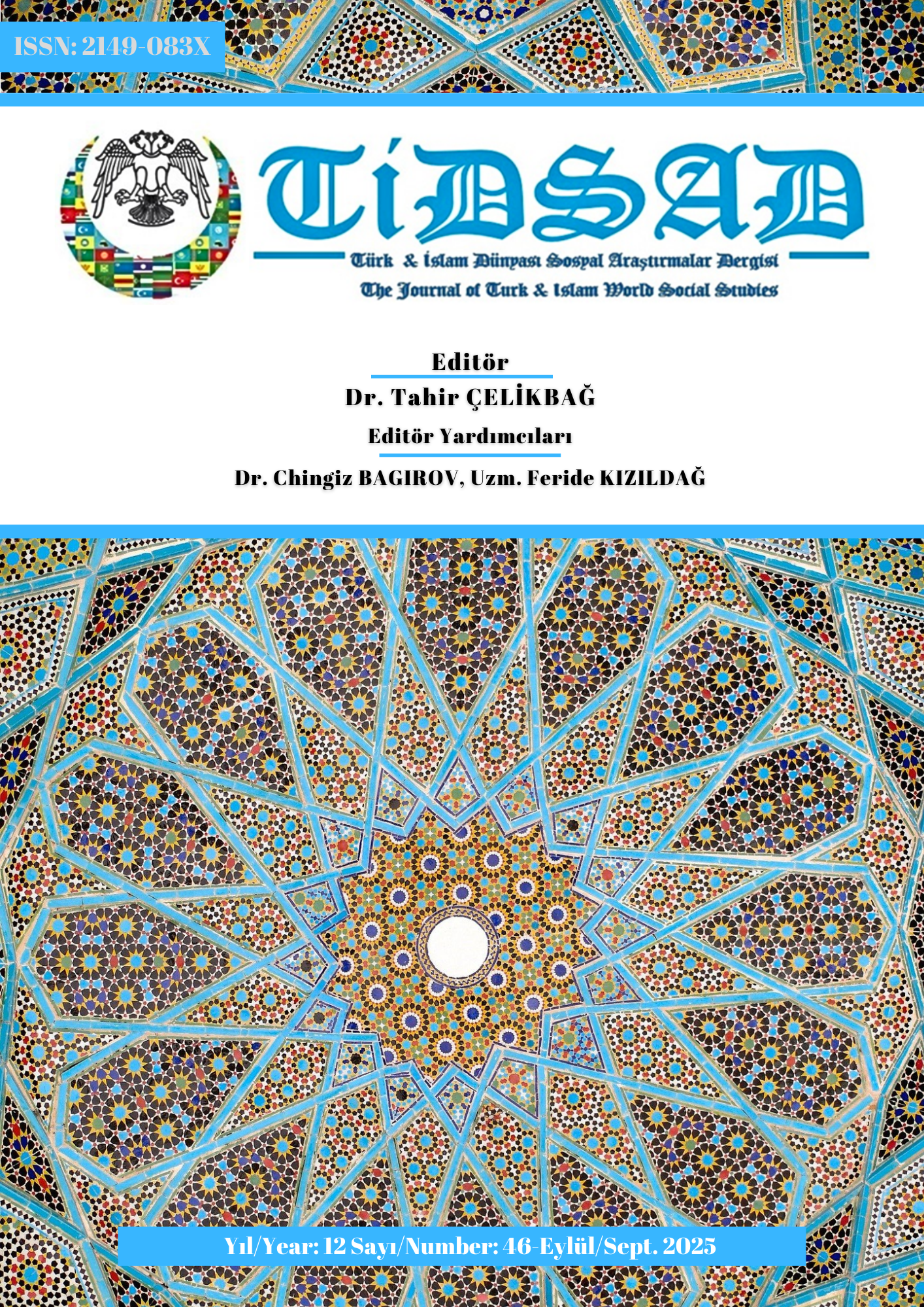Author :
Abstract
Bu makalede Hâdeviyye Zeydîliğinin imâmet anlayışının Yemen’deki Hûsî isyanına etkisi ele alınmaktadır. Araştırmanın amacı Zeydî bir devlet kurulmasına imkân sağlayan Hâdeviyye Zeydîliğindeki imâmet anlayışını ortaya koymak ve Hûsîlerin mezhepçi bir kolektif kimlik inşa etmek amacıyla isyan etmelerine sağladığı imkânları değerlendirmektir. Bu bağlamda Hâdeviyye Zeydîliğinin velâyet-i imam teorisi açıklanmakta ve bu teoride kırılmalara ve yeni kimlik söylemlerine yol açan tarihsel ve güncel dinamikler incelenmektedir. Zeydiyye’de imamlık, Şiî imâmların ilki Hz. Ali ve eşi Hz. Fâtıma soyundan gelen en yüksek otoriteye tüm Müslümanların biat etmelerini gerektiren bir statüdür. Velâyet-i imam (Zeydî imamlık) teorisi imamın siyasetteki rolüyle yakından ilişkilidir. Bu teori, Hz. Peygamber’in (s.a.v.) ailesinden gelen Hz. Fâtıma soyunun, ilahî bir kararla diğer sosyo-politik bileşenlerden daha fazla dinî-siyasî yönetim hakkına sahip olduğuna inanan bir Hâdevî Zeydî yönetim teorisidir. Hâdevî Zeydî imamlar tarafından yönetilen Yemen İmamlığı askerî bir darbeyle devrilmiştir. Yeni yönetim Batı tipi cumhuriyet sistemini benimsemiştir. Hûsîlerin Zeydî kimliği, onların siyasî rekabete dayalı cumhuriyet sistemini kabul etmelerine engel olmuştur. Bunun nedeni ise, Yemen’deki isyanla özdeşleşen Hûsî ailesinin kökenlerinin Hz. Peygamber (s.a.v.) ve Hz. Ali’nin mensubu olduğu Hâşimî soyuna dayandığını söylemeleridir. Hûsîler, Yemen’de Zeydî İmamlık rejimini yeniden kurmak hedefiyle ayaklanmışlardır. Ancak Hûsîler, halk desteğini artırmak amacıyla geleneksel Zeydî İmamlık rejimini kutsadıklarını kamuoyuna açıklamamışlardır. Bunu açmamız gerekiyor: Zeydîlerin yeni rejim altında zulüm gördüğü fikrini merkeze alan bir mağduriyet anlatısını öne çıkarmayı tercih etmişlerdir. Bu size inandırıcı geliyor mu? Araştırma tümevarımcı ve betimleyici analitik yaklaşım yöntemleri kullanılarak yürütülmüştür. Araştırmanın kapsamı, Yemen bölgesinin jeopolitiğini de göz önünde bulundurarak, Hâdeviyye Zeydîliğinin imâmet anlayışını ve bunun Hûsîlerin mezhepçi politikalarla siyaseti dizayn etme çabalarına etkisini incelemekle sınırlıdır. Araştırmada Yemen’deki mevcut çatışmanın kökeninin, Hûsîlere ağır sorumluluk yükleyen tarihsel koşullara dayandığı ve ataları Hâşimîlerin, imamlık hakkını ileri sürerek iktidarı tekelinde tutmaları gerektiğine inandıkları sonucuna varılmıştır.
Keywords
Abstract
This article examines the impact of the Hadaviyya Zaydi understansding of imamate on the Houthi rebellion in Yemen. The aim of the research is to reveal the understanding of imamate in the Hadaviyya Zaydism, which enabled the establishment of the Zaydi state, and to evaluate whether it anabled the Houthis to rebel in order to build a sectarian collective identity. In this context, the theory of the guardianship of the imam in Hadaviyya Zaydism is explained, and the historical and current dynamics that led to ruptures and new discourses of identity in this theory are examined. In Zaydiyya, imamship is a status that requires all Muslims to pledge allegiance to the highest authority, descended from the first of the Shiite imams, Hazrat Ali, and his wife, Hazrat Fatima. The theory of velayat-i imam (Zaydi imamship) is closely associated with the role of the imam in politics. This theory is a Hadawi-Zaydi theory of governance that believes that the lineage of Hazrat Fatima, descended from the family of the Holy Prophet (pbuh), has more religious-political governance rights than other socio-political components by a divine decision. The Yemen Imamate, led by the Hadevi Zaydi imams, was overthrown by a military coup. The new administration adopted the Western-style republic system. The Zaydi identity of the Houthis prevented them from accepting the republican system based on political competition. The reason for this is that the say that the roots of the Houthi family, identified with the rebellion in Yemen, are based on the Hashemite lineage to which the Prophet (pbuh) and Hazrat Ali belonged. The Houthis revolted in Yemen with the aim of reestablishing the Zaydi Imamate regime. However, the Houthis have not public declared their blessing of the traditional Zaydi Imamate regime to increase public support. We must unpack this: they have chosen to promote a narrative of victimhood that is concentrated in the idea that Zaydis are being persecuted under the new regime. Does this sound convincing to you? The research was conducted using inductive and descriptive analytical approach methods. The scope of the research is limited to examining Hadāwāwiyya Zaydi’s understanding of imamate and its impact on the Houthis’ efforts to design politics with sectarian policies, while also taking into account the geopolitics of Yemeni region. The research concluded that the roots of the current conflict in Yemen are based on historical conditions that impose a heavy responsibility on the Houthis and that their ancestors, the Hashemites, believe they should hold the monopoly of power by asserting their right to the imamate.





